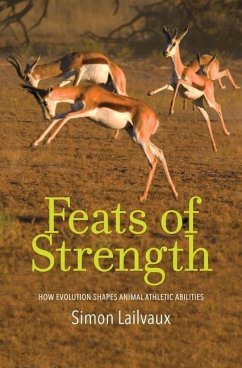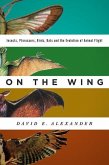A fascinating exploration of the extreme world of animal athletics, how these stunning abilities have evolved, and their insights into human performance and evolution How is it that fish can climb waterfalls, snakes glide, and cheetahs run so fast? Natural and sexual selection has driven the evolution of diverse and stunning athletic abilities throughout the animal kingdom. Drawing on decades of performance research, integrative biologist Simon Lailvaux highlights the ecological and evolutionary importance of these abilities, which include running, jumping, flying, biting, climbing, and swimming, and explains the many reasons they exist. He describes the methods and tools scientists use to measure animal performance-remote sensing technologies that can capture a cheetah's running speed, or force meters that gauge the strength of a lizard's bite or crab's grip-as well as the reasons why they act this way. Using examples from the smallest insects to birds, whales, and even dinosaurs, Lailvaux provides a unique glimpse into a vibrant, eclectic field of research and points to new directions for understanding performance evolution in both animals and humans.
Hinweis: Dieser Artikel kann nur an eine deutsche Lieferadresse ausgeliefert werden.
Hinweis: Dieser Artikel kann nur an eine deutsche Lieferadresse ausgeliefert werden.







